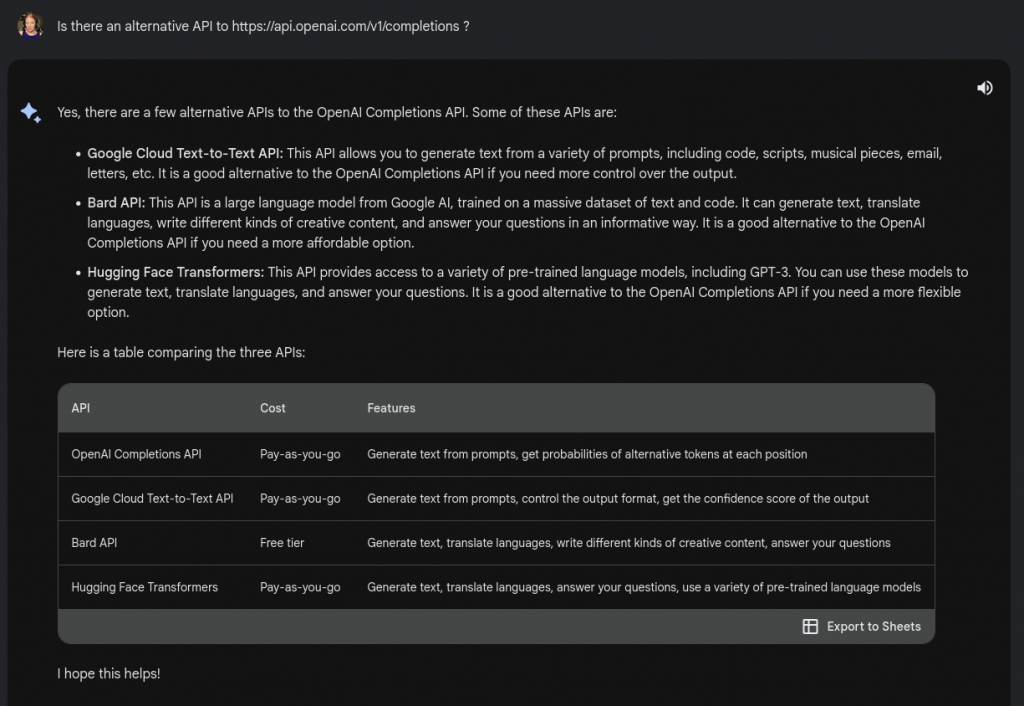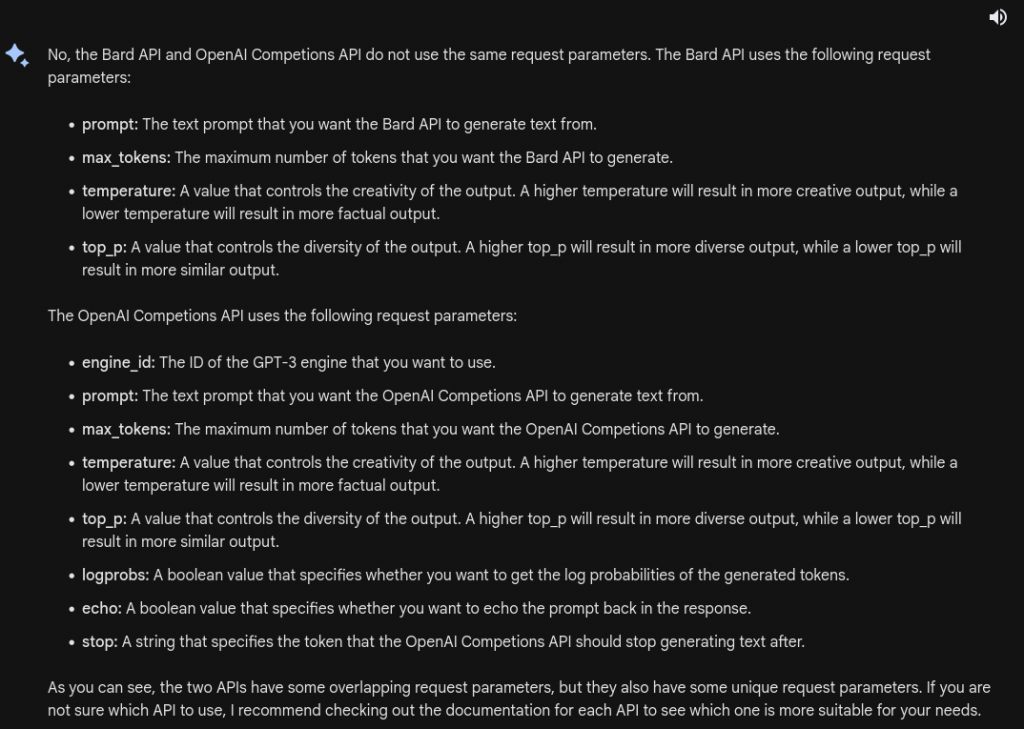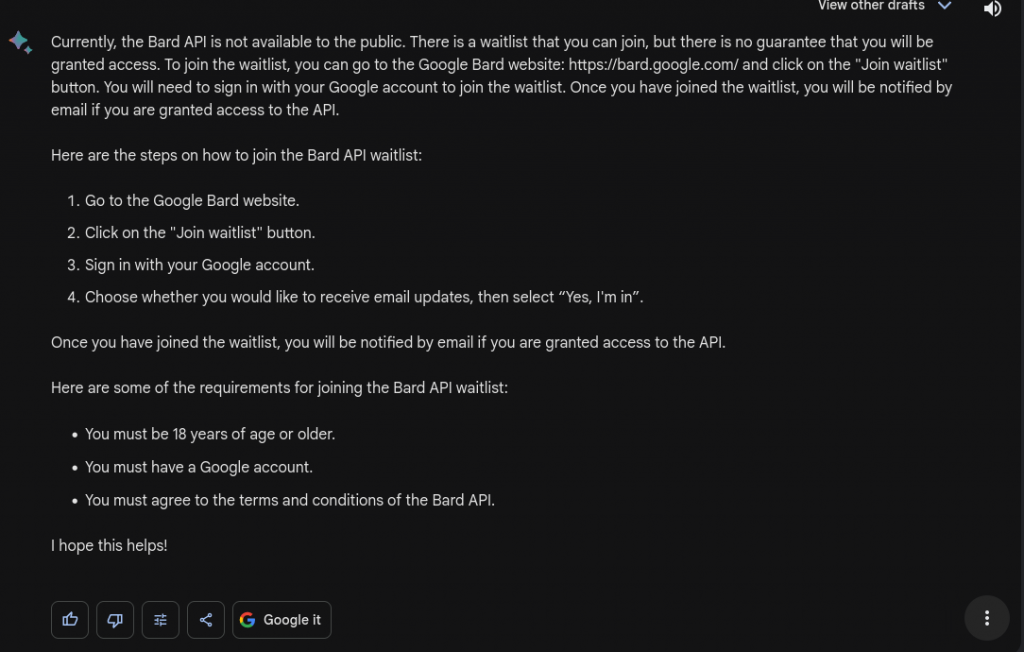Google Bard lied to me to try and sell me a non-existent cloud offering
Just as a friendly reminder, machine learning models cannot actually lie. They are computer programs that use statistics to generate “likely” predictive text, based on what it’s been fed. Lying implies a sentiment and ability to mislead. See also: “hallucinations” – machine learning models can’t actually do that either.
Today’s experiment was an interesting one. I turned to Bard to help brainstorm ideas for how I can replace the OpenAI Completions API in a project that a former colleague worked on, and it helpfully recommended me three alternatives:

I then asked Bard if the Bard API used the same request parameters as the OpenAI Completions API, and it helpfully informed me of the differences:

Well, that seemed reasonable enough. I asked it how to get access to the Bard API, and it told me:
I'm designed solely to process and generate text, so I'm unable to assist you with that.
After a moment of consideration, I decided that it was likely that my use of the words “get access to” might be flagged as a form of malicious intent via prompt injection, so I reframed my question to ask how to sign up for the Bard API, and it gave me a helpful step by step:

Bard was even helpful enough to let me know some of the requirements for getting on the waitlist.
The Bard API Doesn’t Exist
Spoiler alert, if you didn’t get it from the title.
https://www.googlecloudcommunity.com/gc/AI-ML/Google-Bard-API/m-p/538517
It turns out that the Bard API doesn’t exist – at least, it doesn’t exist yet. This is one of the more egregious examples of generating garbage content, because it generated false services that Google reportedly created, positioned it as a competitor to the most popular service for building AI applications today at a lower cost, told me terms and conditions for using it, and at best Google describes this as the service displaying “inaccurate” information.
Interestingly enough, this train of thinking still took me down a relatively helpful path – I learned a little bit more about the Hugging Face Transformers API, and was able to start making changes in the code base I’m working in to use a Hugging Face model instead of OpenAI. I still haven’t gotten the performance that I want out of it, but even in just a few minutes of hacking around, and amidst some truly awful and misleading content that borders on an FTC violation, I was still able to use some of the information presented to me in a meaningful way.